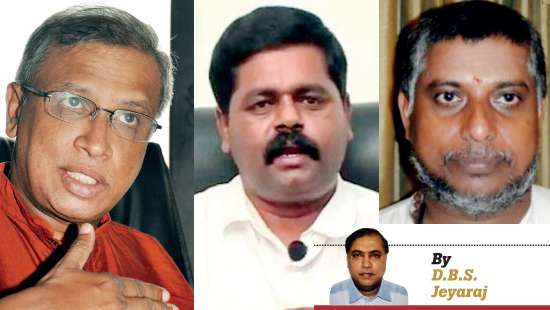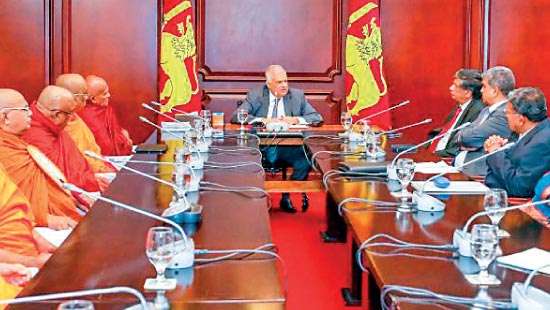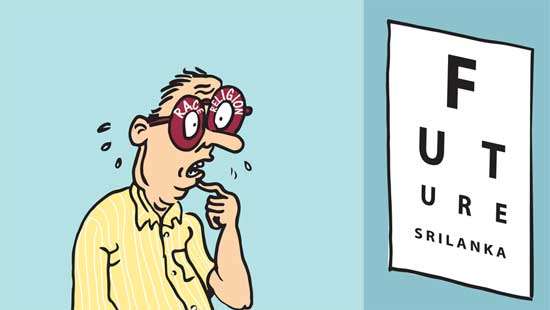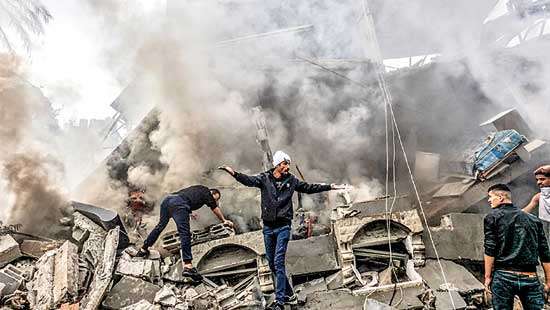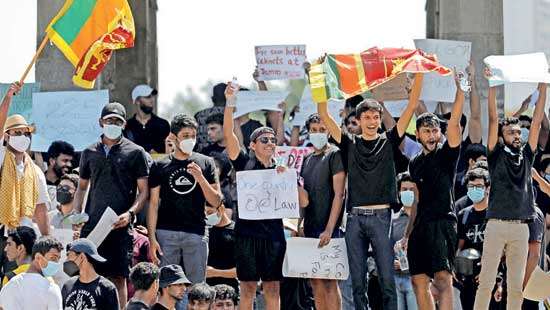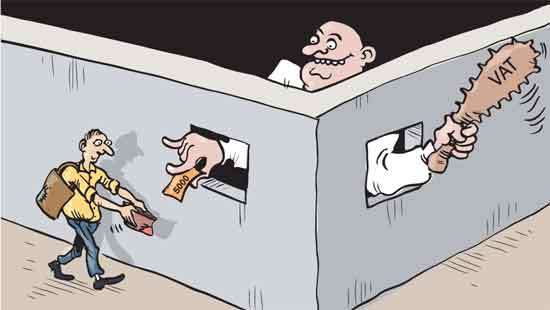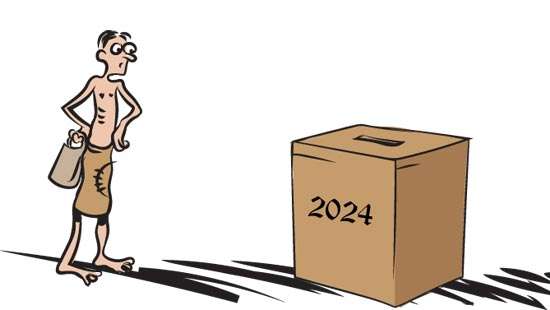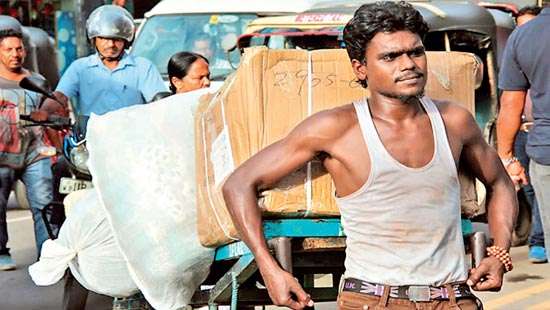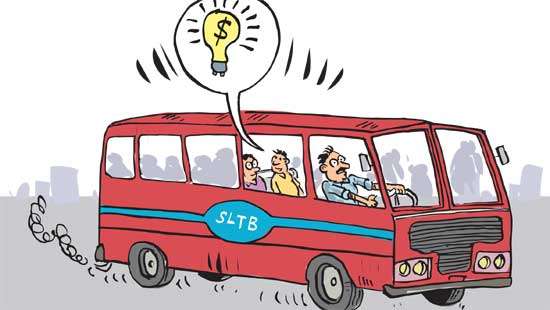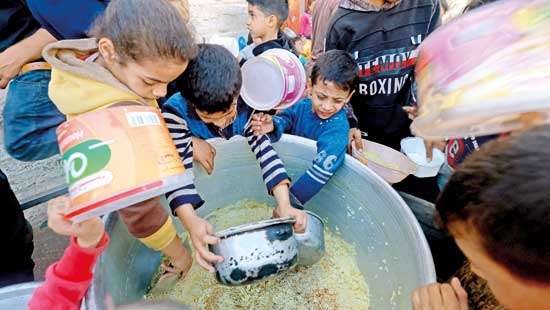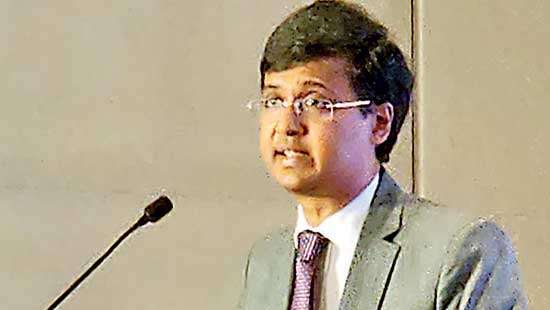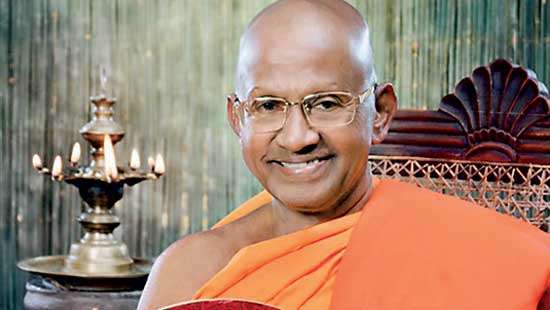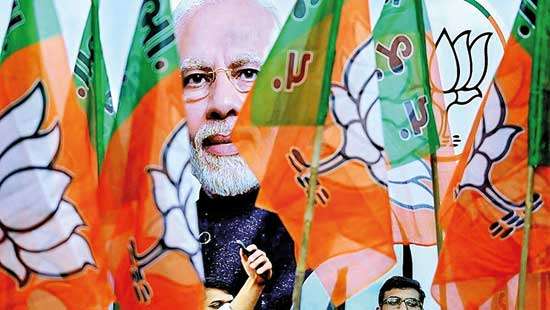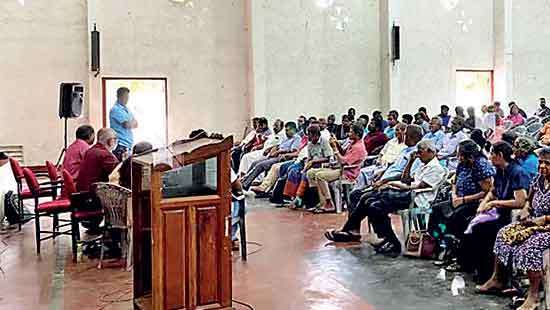Opinion
Truth About Truth Seeking
16 Dec 2023
 3
3
Last week saw two important events in respect of reconciliation among various communities in Sri Lanka. In one of them, several members of the Global Tamil Forum (GTF), a group from the Tamil diaspora and a group of leading Buddhist monks, met President Ranil Wickremesinghe and the Mahanayake Theras of the Malwatta and Asgiriya Chapters on December 8, and handed over a document called “Himalaya Declaration.”
The Festive Season Amid Soaring Poverty, Hunger And Inequality - EDITORIAL
16 Dec 2023
 2
2
The season of Christmas with all its attendant festivities is with us. Yet our country is broke. Some among us like to think that we have recovered from our national bankruptcy, pointing out that we now have reserves and that international financial agencies are willing to offer us credit. But the fact of the matter is, we have not even started to repay our outstanding debts.
Collective Effort to Eradicate Poverty
14 Dec 2023
 1
1
With Sri Lanka’s 2024 budget being approved by Parliament yesterday, the International Monetary Fund (IMF) is likely to give approval to its second tranche of a USD 3 billion bailout package, after which the country’s economy is likely to stabilize. President Ranil Wickremesinghe has handled the economic crisis with skill, but the Government of the Sri Lanka Podujana Peramuna (SLPP) is badly split with different fractions expressing different vi
The Battle Between The Savage Mentality Of Regimes And Human Rights
14 Dec 2023
 1
1
The world is celebrating 75 years of human rights at this point of time, and its timely to look back and reflect on how Sri Lanka has fared in a subject which promises a better and righteous society. From the time Sri Lanka received independence from the British, many avenues were opened for the downtrodden masses to educate themselves and hold high positions in society and even in government establishments. Before that such positions and the be
It Is Up To The People Now, To Rectify The Situation
12 Dec 2023
 2
2
Parliament sessions on Sunday had to be adjourned for Monday for want of quorum, while the Value Added Tax (VAT) Amendment Bill was being debated. Interestingly, only 18 out of 225 members elected by the people to represent them were present at the time of adjournment, even after the quorum bell was rung. 207 members had absented themselves. Parliamentary quorum is just 20 members. The VAT Amendment Bill that was to be passed on Sunday is meant
Privatization of Militaries Opens Doors for Soldiers of Fortune
12 Dec 2023
 4
4
In these days of economic downturns and rising unemployment, it is not surprising that Sri Lankans and Nepalese with a military background are finding jobs in their line of expertise in the Russo-Ukrainian war theatre. While retired Sri Lankan military men are finding opportunities in the Ukrainian Foreign Legion (UFL), the Nepalese are heading for Russia to serve as auxiliaries in the armed forces of that country. The recruitment of foreigners
SC Ruling Vs MR’s Ruling
09 Dec 2023
 4
4
Former President Mahinda Rajapaksa has been taking every possible effort to minimize the effects of the Supreme Court ruling on November 14 against him, two of his brothers and officials loyal to them, pronouncing that they were responsible for the economic crisis which the country is still reeling from.
2024 Is Election Year, It is No Win -Win Situation - EDITORIAL
09 Dec 2023
 7
7
The next year for us Lankan’s is an election year. Whom are we going to elect as President? Our country is going through one of the most traumatic periods in its history. Irrespective of race, religion or ethnicity, large sections of the public have been pushed into poverty.
Taxing the Poor to Reward the Rentiers
09 Dec 2023
 1
1
Sri Lanka’s 2024 budget, touted as “revolutionary,” punishes the poor with sky-rocketing indirect taxes to reward owners of government debt, by allocating the largest share of expenditure on domestic interest payments and servicing International Sovereign Bonds.
The Commercialisation of Christmas
07 Dec 2023
 0
0
In commercial terms, the Christmas season is on going with bargain sales and shopping sprees mainly by Christians who stand indicted of commercialising Christmas. To encourage Christians to mark Christmas in an austere manner and in the spirit of the Sinhala word “Alpechchathawa” (“w,afmaÉP;dj”) or a simple and humble lifestyle, we would like our readers to contemplate on what we call the Parable of the Fourth Wise Man. The Parable of the Fourth
Gender-Based Budgeting for 2024: More Tokenism or True Commitment?
07 Dec 2023
 1
1
With the committee stage debates on Budget 2024 still ongoing, our interest has been piqued by a term that has gained relatively little attention since it was mentioned in the Budget Speech presented on 13 November 2023: “Gender-Based Budgeting”. Gender-Based Budgeting or Gender-Responsive Budgeting (GRB) makes sense, from a social justice perspective and a sustainable growth perspective. However, given the government’s track record with GRB, t
Disability rights: the sri lanka context
07 Dec 2023
 0
0
This article is based on an address delivered by Rajeev Amarasuriya in the Session on Disability Rights at the 36th LAWASIA Conference held in Bengaluru, India recently. The world as we know it has been on a pathway towards development, to make the lives of the people who live in it easier, efficient and convenient. It is not only the standard of life which is continually sought to be increased but also the quality and value of life, which is wh
Most Ven. Mataramba Hemarathana An epitome of friendliness and compassion
07 Dec 2023
 1
1
Born on September 17, 1947 at Mataramba, a lush village in the District of Galle as the fifth sibling in a family of six children and having received his primary education at Malcom Vidyalaya Yatagala, the Ven. Hemarathana entered the Buddha Sasana on April 5th, 1956 under the guidance of veteran prelate Ven. Kalahe Gunarathana. Yatagala Maha Pirivena, which was one of the most reputed seats of learning in Southern Sri Lanka, which produced world
Sri Lanka’s Carbon Credits Landscape and Carbon Crediting Scheme
05 Dec 2023
 1
1
In Sri Lanka, the Carbon Crediting Scheme (SLCCS) is a national offset scheme established to support local clean projects to benefit from climate finance for Greenhouse Gas emission (GHG) reduction. This scheme is developed with well-defined provisions to enhance credibility, transparency and quality of emission reduction in Sri Lanka. In an era, where vast opportunities are growing for low-cost GHG reduction projects, SLCCS enables it to bring
Commemoration of war dead and national integration
05 Dec 2023
 3
3
As alerted by some foreign intelligence agencies a few days ago, a person identified as Dwaraka, the daughter of the slain leader of the Liberation Tigers of Tamil Eelam (LTTE) Velupillai Prabhakaran appeared on a Europe-based website last Monday (November 27) and made a speech, marking the outfit’s Maveerar Naal (Great Heroes’ Day). The intelligence agencies had told that Dwaraka’s image had been created using Artificial Intelligence (AI) to sh
North-South Fisher Resistance and Working People’s Politics
05 Dec 2023
 0
0
What becomes of a people who are not just abandoned but willfully dispossessed by the state using the crisis as an opportunity? How do the people respond when political parties hardly see their suffering, and their trade unions are for the most part muted? These are questions we are confronted with as one of the most regressive budgets is about to be passed by an illegitimate Parliament. The implications of Budget 2024 are far reaching.
Will debt restructuring efforts flounder on rampant corruption? - EDITORIAL
04 Dec 2023
 3
3
In April 2022, our country declared it would be defaulting on its external debt of $51 billion. A result of domestic economic mismanagement and a drop in foreign currency reserves. In turn this led to shortages....

Emirates on track to become world’s 1st Autism Certified Airline
04 Dec 2023
 0
0

JICA assures continued aid to Sri Lanka
04 Dec 2023
 0
0

Govt. to tap migrant worker savings with Rs.744.75mn entrepreneurship scheme
04 Dec 2023
 0
0

Business community welcomes New Year with positive sentiments
04 Dec 2023
 0
0

President to meet his Chinese counterpart Xi Jinping on January 15
04 Dec 2023
 0
0

SL aims for ‘transformative acceleration’ in post-crisis growth
04 Dec 2023
 0
0


